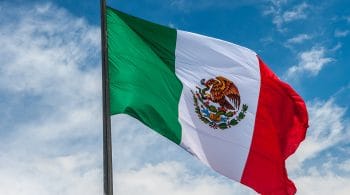Knowledge of aviation law is necessary for anyone involved in the aviation industry. From airport security to flight dispatchers, everyone whose job requires them to travel by air should understand these laws.
The field of aviation law covers everything from aircraft navigation and maintenance to airline passenger safety and pilot licensing requirements. It also includes international aviation issues governed by multilateral treaties and agreements.
Regulatory Compliance
Airline operators must comply with numerous environmental, safety, and security rules to ensure flight operations. Failure to do so carries severe penalties, including fines and jail time. To stay on top of regulatory changes, they must have access to transparent and accountable technological systems.
DOT regulations cover many areas, including the importance of aviation law, from airport development to ensuring service animals are properly tethered in the airplane. The DOT has also clarified that airlines and ticket agents are prohibited from engaging in unfair or deceptive practices. The department recently issued an interpretive rule, known as guidance, on the definitions of “unfair” and “deceptive” practices to clarify its statutory authority to regulate aviation consumer protections.
In addition, the DOT has a comprehensive system for reviewing airport development proposals and oversees the operation of public-use airports. This includes developing and maintaining the capacity and condition of airports, granting no exclusive rights, mitigating hazards to airspace, and using airport revenue by governing laws.
In addition, the DOT has a system for awarding grants to help airports meet their development and operational goals. It is also responsible for regulating the US commercial space transportation system, including rocket and satellite launches. Lastly, the DOT oversees passenger protection and civil rights, including the right to a fair and reasonable fare.
Contract Negotiations
In addition to federal aviation regulations, numerous state and local laws impact airlines. Civil cases can result in monetary awards or injunctive relief, depending on the jurisdiction. In contrast, criminal cases can lead to monetary fines or incarceration. Civil courts have broad jurisdiction and can hear most claims, whereas federal courts handle more complex or high-stakes matters.
Airline workers are governed by union contracts, which set their wages and working conditions. These contracts are negotiated in federally-mandated arbitration procedures. The process can be lengthy and contentious, potentially disrupting flights.
Labor costs account for a significant portion of most airline firms’ operating expenses. Airlines with high labor costs cannot compete with newer, low-cost competitors that can offer cheaper tickets. This is why airline labor has traditionally opposed deregulation.
The DOT examines applications from foreign carriers seeking to fly into the US and reviews code-sharing arrangements between domestic and foreign airlines. It also evaluates whether a foreign carrier is financially sound, has management expertise, and can meet international safety standards. These requirements help ensure foreign airlines comply with US law and do not threaten public safety or national security.
Licensing
Generally, air carriers are licensed to operate by their local government. The license entails certain requirements, including passenger and public liability insurance, flight crew certification, and aircraft maintenance. Licensing may also involve safety regulations enforced by a regulatory agency such as the FAA or DOT in the US. The license is subject to inspection and renewal. The FAA and DOT also have rules concerning foreign ownership of airlines.
Governments may assist their airlines by offering loans or guarantees and providing grants or subsidies. Whether this type of aid will increase the government’s direct role in the airlines’ corporate structure depends on the terms of the scheme. For example, nationalization or recapitalization will likely increase the governments’ direct involvement for years. However, government support may also reduce operating costs for a longer period through subsidized rates.
In the United States, a foreign airline seeking to be licensed must meet the following criteria:
Privacy
Airline privacy policies and state laws govern the collection of passenger data. Airline deregulation has been a major policy shift in recent years, and consumer opinions vary greatly about the impact of that change. Some consumers benefited from the removal of government controls on airfares, while others, particularly residents of small cities, were concerned about their ability to find and book affordable flights to their destinations.
Airlines may share passenger and flight data through corporate service agreements and code-sharing arrangements. The DOT regulates such agreements to ensure that they are not anti-competitive and do not harm the public. The DOT also has the authority to take certain action under the unfair and deceptive practices and methods of competition statute, 49 USC SS 41720, against airlines that engage in such activity.
In addition, the DOT and the Justice Department monitor global distribution systems (GDSs) that sell airline tickets to travel agencies. Passengers can file complaints with the DOT regarding their GDS experience. If the DOT determines that an airline has lost private passenger data, it can impose fines on the carrier.



